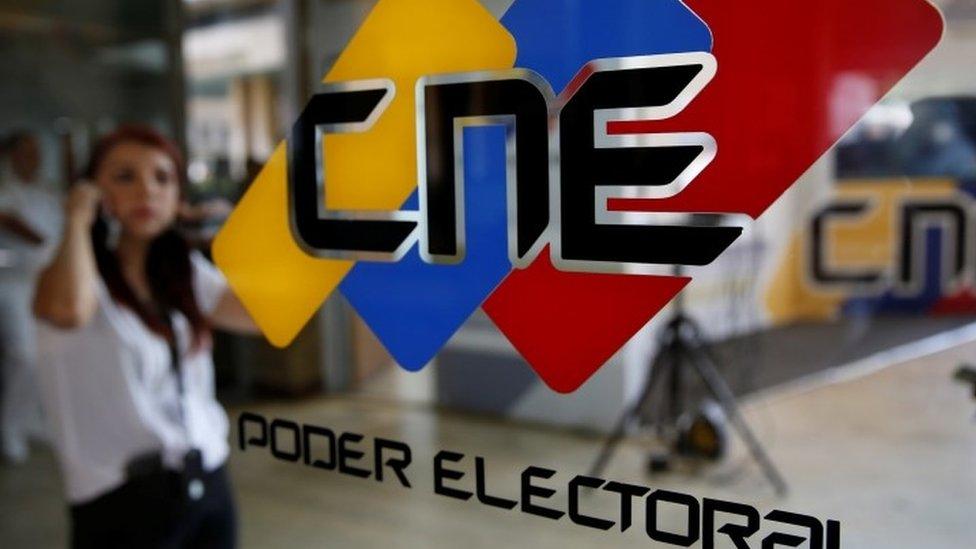Venezuela envoy disputes UN chief's "humanitarian crisis" remarks
- Published
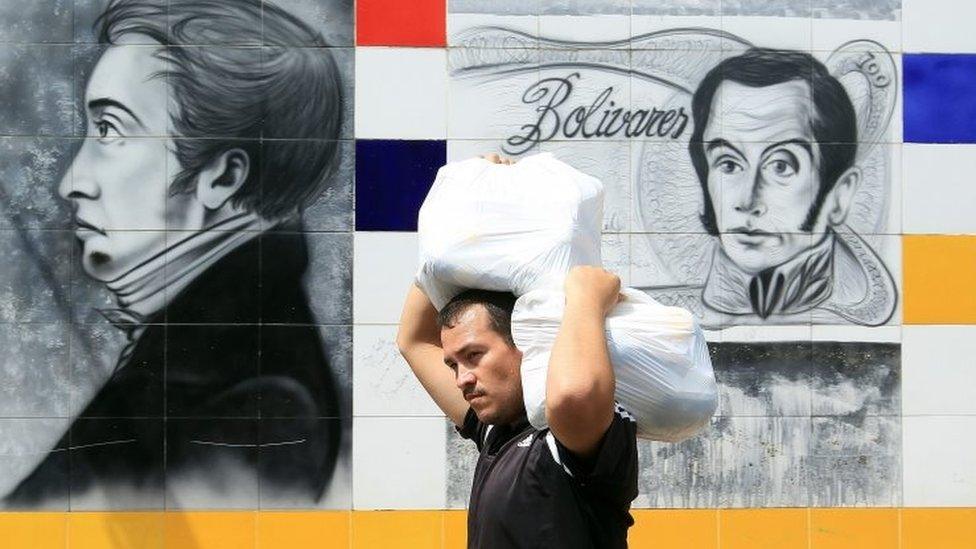
Venezuelans crossed the border into Colombia over the weekend to stock up on basics
Venezuela's ambassador to the UN, Rafael Ramirez, has denied there is a humanitarian crisis in his country.
He said comments made by UN Secretary General Ban Ki-moon to that effect last week were "wrong".
Mr Ban said he was "very worried" by the "humanitarian crisis" in Venezuela. He said it was caused by "political instability".
Venezuela is in the grip of a severe economic crisis which has led to shortages of basic goods.
At the weekend, almost 150,000 people crossed from Venezuela into Colombia to buy food and medicine, according to Colombian migration officials.
Long queues formed on Saturday before dawn to take advantage of the 12-hour daily window in which pedestrians are allowed to cross.
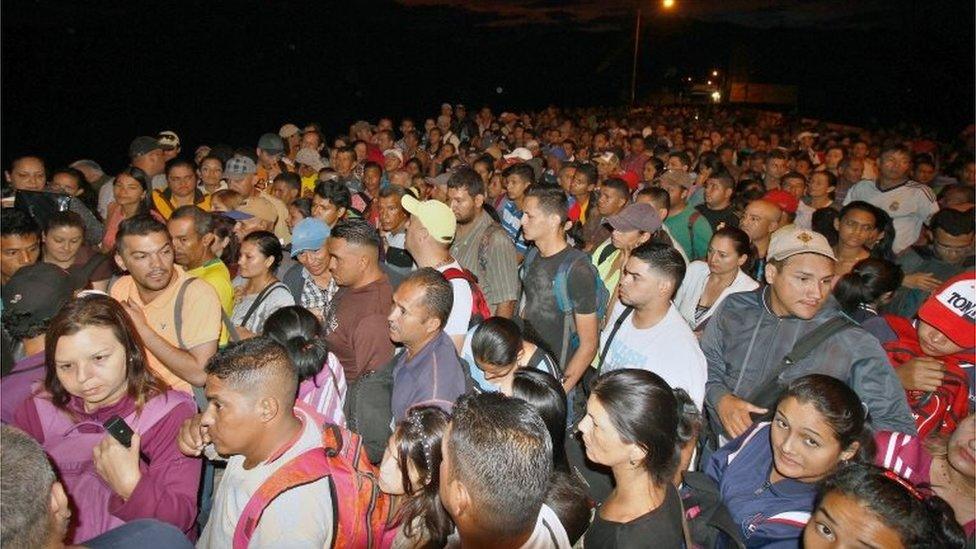
Thousands of Venezuelans queued before dawn to cross into Colombia to buy food
The re-opening of the border on Saturday was agreed just days earlier by Colombian leader Juan Manuel Santos and Venezuela's President Nicolas Maduro.
It came almost a year after Mr Maduro had ordered the closure of the border to prevent the smuggling of subsidised goods from Venezuela to Colombia.
'Problems yes, crisis no'
With Venezuela's economy nose-diving, Venezuelans had been clamouring for the border to re-open so they could cross into Colombia to buy goods which are not available to them in Venezuela.
The shortage of basic items has become so severe, Mr Ban described it as humanitarian crisis.
Speaking to journalists during a visit to Argentina he said: "I'm very worried about the current situation, in which basic goods and services such as food, water, health care and clothes aren't available."
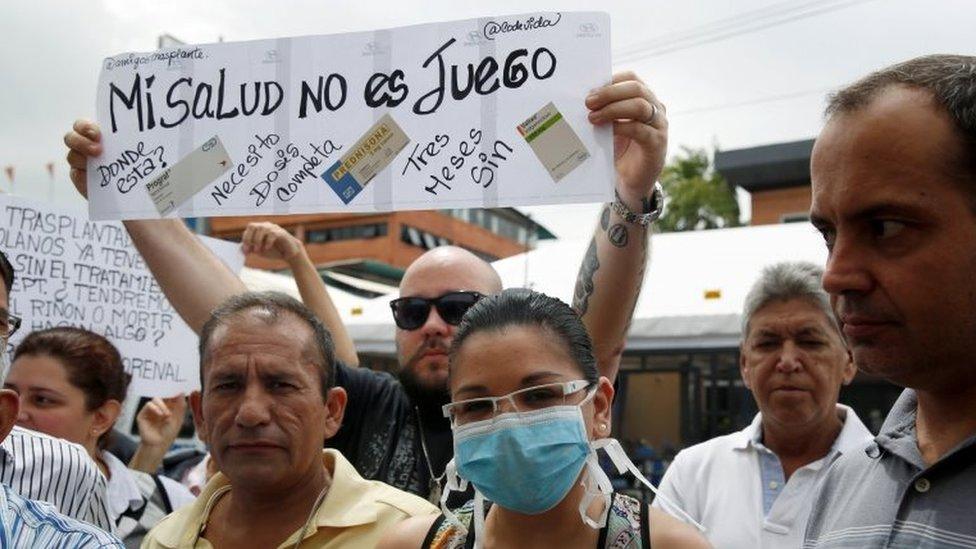
Venezuelans say they are not able to get the medication they need because of the shortages
"This triggers a humanitarian crisis in Venezuela which is created by political instability," he added.
But Mr Ramirez called Mr Ban's description "strange" and questioned where the UN secretary-general got his information.
"We have problems here, but it's nowhere near a humanitarian crisis," he said.
He also said that President Maduro would speak to Mr Ban in September during a summit of the Non-Aligned Movement in Caracas.
The Venezuelan government blames the shortages on an economic war being waged against it by its enemies and the United States.
Opposition politicians, however, argue the government has mismanaged the economy for years and is therefore responsible for the shortages.
- Published13 August 2016
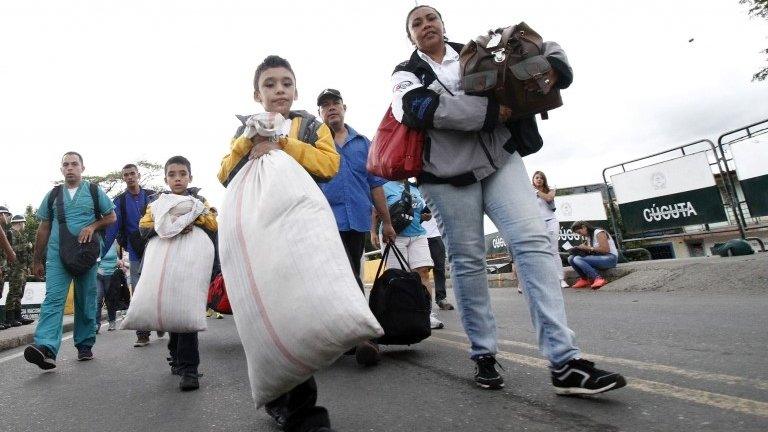
- Published10 August 2016
